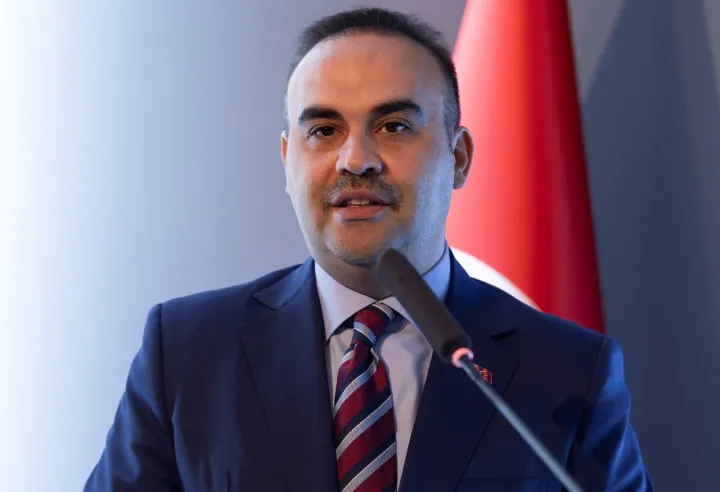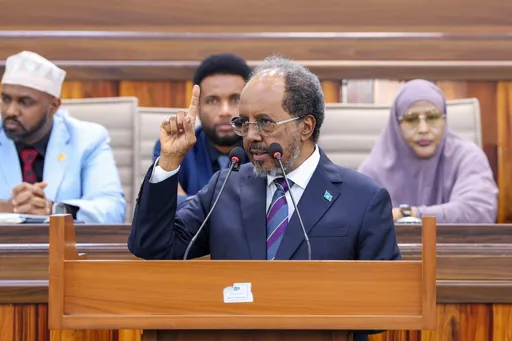By Brian Okoth
Kenya's President William Ruto has met his predecessor Uhuru Kenyatta in what many term a "surprise move" in the East African nation's political circles.
Kenyatta, who served as president from 2013 to 2022, supported the presidential candidature of Kenya's former Prime Minister Raila Odinga in the August 2022 election won narrowly by Ruto.
Ruto, 57, served as Kenyatta's deputy for 10 years, but the two fell out during Kenyatta's second term after the then-head of state struck a cooperation agreement with Odinga, who was leading the opposition.
During campaigns, in the run-up to the August 9, 2022 elections, Kenyatta said Ruto could "not be trusted" to efficiently steer Kenya as president, and that Odinga was the better option.
State of current affairs
Ruto, on the other hand, said Kenyatta's administration had done little to improve the lives of Kenyans, and that his (Ruto's) presidency would "outshine" that of Kenyatta.
President Ruto's two years at the helm have been subjected to several questions in regard to Kenya's state of current affairs, including a new but confusing national health scheme, university students' education funding model, an increase in the number of reported abductions, and what Kenyans term "opaque" procurement processes on government projects, which saw the collapse of airport and energy projects, which were to be executed by India's Adani Group.
Ruto's administration has also faced accusations of haphazard increase of taxes, abetting corruption, and overall inefficiency in governance.
President Ruto's administration strongly rejects the allegations, which have also been made by religious groups in Kenya.
Tense engagements
In his relations with Kenyatta, the two have had tense engagements, with Kenyatta saying in June that President Ruto's administration was denying him his retirement benefits, including an office, vehicles and staff.
Ruto, through government spokesperson Isaac Mwaura, denied the allegations.
Since leaving office, there had been no known meeting between Kenyatta and Ruto.
Kenyatta, 63, was on the record saying he would meet Ruto if the president looked for him.
'Issues of national and regional importance'
On Monday, President Ruto visited Kenyatta at his countryside home in Gatundu South in Central Kenya's Kiambu County, some 50 kilometres north of the capital Nairobi.
State House spokesperson Hussein Mohamed said Kenyatta and Ruto discussed "several issues of national and regional importance."
"President Ruto took the opportunity to reiterate his appreciation and commendation of His Excellency President Kenyatta's statesmanship in overseeing the peaceful transfer of power after the 2022 elections," Mohamed said in a statement.
The State House spokesperson added: "President Ruto thanked President Kenyatta for laying a strong foundation that has enabled the government to implement key programmes. These programmes include transforming agriculture to ensure food security, achieving universal health coverage, providing affordable housing, empowering MSMEs, developing transport and communication infrastructure, last-mile electrification, and re-evaluating and reforming the Competency-Based Curriculum and the education sector in general, among other initiatives."
Protests
In June and July, Ruto's administration faced protests over "high taxes" and cost of living crisis.
The president, consequently, abandoned a contentious finance bill that would have introduced more taxes, and also overhauled his cabinet.
During his cabinet reconstitution, he coopted several senior leaders of the opposition party, the Orange Democratic Movement (ODM), which is under the leadership of Odinga, 79.
Political observers said the move was aimed at "silencing" the opposition, but Ruto said it was part of his plans to "bring every political stakeholder into his broad-based government."
Odinga's candidature for AU Commission chairperson
Ruto is now supporting Odinga's candidature for the African Union Commission chairmanship, and has campaigned for him during several international presidential summits.
The current AU Commission chairperson, Moussa Faki Mahamat of Chad, will leave office in early 2025 after serving his maximum two four-year terms at the helm.
During Ruto's and Kenyatta's talks on Monday, the issues of broad-based government and Odinga's AU Commission chairmanship came up.
"The leaders (Ruto and Kenyatta) appreciated the need to achieve broader and more inclusive political consensus in the governance of our country to accelerate the attainment of inclusive growth and fulfill the national development agenda," State House spokesperson Mohamed said.
'Regular engagements'
"The two leaders (also) called on Kenyans, friends of Kenya, and international partners to support the candidacy of Rt. Hon. Raila Odinga for the position of Chair of the African Union Commission," Mohamed added, stating that Ruto and Kenyatta had "committed to maintaining regular engagements on matters of national importance alongside other leaders and stakeholders."
The leaders' meeting has raised eyebrows, with some political quarters wondering about the not-so-apparent motive behind it, given Ruto and Kenyatta previously could not see eye to eye on several issues.
Other political pundits observe that it could be the start of fresh political realignments as Ruto seeks to find renewed support ahead of his re-election bid in 2027.
Opinion polls show that Ruto's popularity has reduced in the two years he has served as president.
➤ Click here to follow our WhatsApp channel for more stories.





























